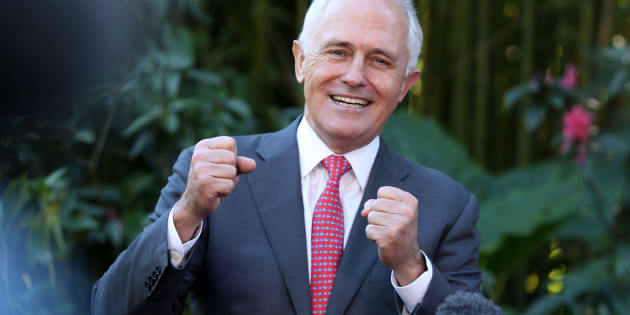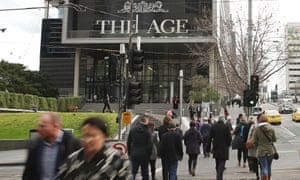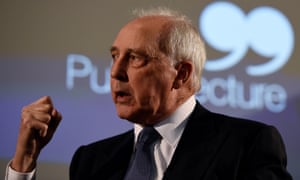
He could smell the dungeons in the distant reaches.
The death of Fairfax, the headlines screamed.
Turnbull danced on their grave, claiming credit.
Everything in the country was going wrong.
All the forerunners to totalitarianism and revolution were falling into place.
"It's the worst mistake of my career, one of the hunters acknowledged. "We've apologised a thousand times and he always ignores us."
And then there were... Why here? Why here? Why now?
He could hear everything. And worst of all, he could hear them thinking.
Diving into the ordinary, he did his best to divest himself of the shackles.
It had been the proudest moment of his life, when he got a job as a reporter on the then revered Sydney Morning Herald.
Now the company was dead. Consumed by Channel Nine. Not known for its high quality journalism. A balderdash, swaggering style. Lots of sport. The Neanderthals had won.
It suited the oligarchy no end.
They didn't want anyone to think.
They didn't want anyone to realise just how truly awful they were, these plunderers of the nation, growing richer by the hour.
How much money had Malcolm Turnbull made since he became Prime Minister?
A lot.
Everyone hated him, but there he was, day in and day out, preening in front of the cameras.
For what?
It wasn't for the benefit of the public.
It wasn't for the benefit of the country.
In the far off reaches.
Where there was the darkest decay.
Spiritual aridity.
They should be frightened, very frightened.
When the tendrils of the Mandelbrot set began to decay, then the whole world collapsed.
They were demons in living form. They were true malevolence.
The only solution is a magical one.
He watched in dismay.
THE BIGGER STORY:
All deaths are sudden, even if long expected.
Appropriately enough, this is the opening sentence of a book called Journalism in a Culture of Grief.
And if ever there was a time of grief for journalism in Australia, it is today, with the announcement that Nine Entertainment is taking over Fairfax Media.
It means the death of Fairfax and is the most consequential change in Australian media ownership in 31 years.
It also means that three of Australia’s best and biggest newspapers – The Age, The Sydney Morning Herald and The Australian Financial Review – are now subsumed into a media conglomerate whose editorial culture is characterised by mediocre journalism.
Nine’s news bulletins consist largely of police stories with a tincture of politics, and highlights of colourful or violent events overseas.
Its current affairs program, A Current Affair, is a formulaic procession of stories about consumer rorts and personal tragedies.
So there is a huge question mark over the future editorial quality of the newspapers.
A particularly pressing question is: what will happen to The Age’s investigative unit?
It is led by two of the best investigative reporters Australia has produced, Nick McKenzie and Richard Baker.
In addition to breaking an extraordinary range of major stories on subjects like organised crime and scandals in the banking industry, they have developed a highly successful collaboration with the ABC’s Four Corners team.
It seems very unlikely Nine would allow this collaboration to continue, since it involves a rival television channel.
There could be no greater loss.

Prime Minister Malcolm Turnbull has welcomed the announcement of a takeover of Fairfax Media by Nine Entertainment, affirming the merger was only possible because of media ownership reforms he made last year.
The Labor opposition, however, has expressed fears about greater concentration of media ownership and the job losses which it said would "inevitably" flow from a merger of the two media houses.
In one of the biggest shake-ups in Australian media history, Fairfax chief executive Greg Hywood announced a deal in which Nine would own 51.1 per cent of the new entity under the Nine brand, while Fairfax Media - publisher of The Sydney Morning Herald and The Age - would cease to exist.
Mr Turnbull, a former journalist and media lawyer who relaxed media ownership regulations last year, said the proposed merger would make both companies stronger in a competitive market.
"To be frank, I welcome the announcement," he told Tasmania Talks' Brian Carlton on Thursday, praising Fairfax as a "great Australian company" and Nine as the nation's first television station.

Andrew Jaspan, who edited the Age between 2004 and 2008, lamented the news, saying the Australian media landscape had “too few voices already”.
“The first thing I thought was, ‘This is a very sad day for Australian journalism,” Jaspan told Guardian Australia. “Then I thought, ‘it’s not a sad day, it’s much worse than being sad’. It’s a bad day for journalism in Australia.”
Jaspan said Channel Nine had a “completely different” editorial ethos and constituency, which was “counterbalanced” by outlets such as Fairfax.
“Given that Channel Nine are taking over Fairfax, and Fairfax will die, I think this means we’re going to lose a key distinctive voice in Australia,” Jaspan said.
Fairfax publishes the oldest continuous newspaper in the country, the Sydney Morning Herald (established in 1831), the Age (founded in 1854), The Canberra Times, a network of regional and suburban of papers across the country, and the online-only Brisbane Times.
Guardian Australia was told the news was met by editorial staff at the Age with a mix of shock and anger. There is said to be particular concern among staff about the journalistic differences between Fairfax and Nine. Fairfax staff will be briefed on the takeover by Hywood at 3pm.
Jaspan said he felt the “saddest aspect” of the merger was “why we’ve got to this situation”.
“I think somebody needs to look very closely at what I consider to be the directionless and pointless approach that the current management has towards looking after these great brands,” he said.
“It’s brought us to the situation where they’ve given up and said, ‘You have a go at running it because we just don’t know how to make it work.”

Statement from Paul Keating published in The Guardian:
Notwithstanding the obvious disruption that international platforms like Google and Facebook have made to advertising and traditional media revenues, the answer for Australia is diversity of income streams for Australia’s majors and not a closedown in news and content with major print being taken over by major television.
This is an exceptionally bad development.
Fairfax spent decades missing all the signals about the rise of the digital economy when it could have put itself in a position of relative commercial independence. That notwithstanding, the current management has, in the circumstances, done a better than reasonable job in creating income sources to allow the company to preserve its editorial independence, especially in print.
But if in the announced arrangement Channel Nine has a majority of the stock, Channel Nine will run the editorial policy.
The problem with this is that, in terms of news management, Channel Nine, for over half a century, has never other than displayed the opportunism and ethics of an alley cat.
There has been no commanding ethical or moral basis for the conduct of its news and information policy.
Through various changes of ownership, no one has lanced the carbuncle at the centre of Nine’s approach to news management. And, as sure as night follows day, that pus will inevitably leak into Fairfax.
For the country, this is a great pity.
This is an exceptionally bad development.
Fairfax spent decades missing all the signals about the rise of the digital economy when it could have put itself in a position of relative commercial independence. That notwithstanding, the current management has, in the circumstances, done a better than reasonable job in creating income sources to allow the company to preserve its editorial independence, especially in print.
But if in the announced arrangement Channel Nine has a majority of the stock, Channel Nine will run the editorial policy.
The problem with this is that, in terms of news management, Channel Nine, for over half a century, has never other than displayed the opportunism and ethics of an alley cat.
There has been no commanding ethical or moral basis for the conduct of its news and information policy.
Through various changes of ownership, no one has lanced the carbuncle at the centre of Nine’s approach to news management. And, as sure as night follows day, that pus will inevitably leak into Fairfax.
For the country, this is a great pity.

No comments:
Post a Comment